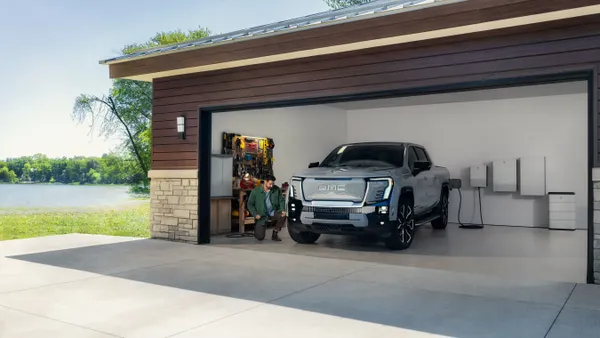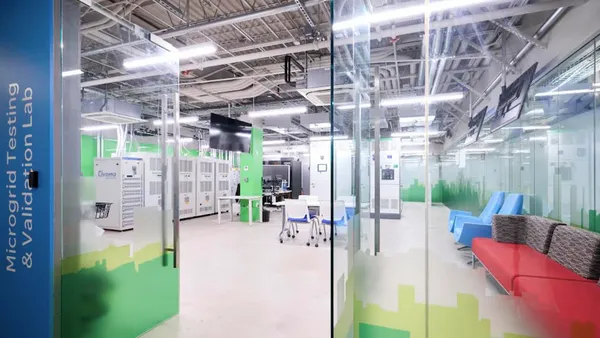Dive Brief:
- Cummins is buying Meritor for $3.7 billion in a deal aimed at the future of trucks and zero-emission vehicles, the companies announced Tuesday.
- The acquisition will add products to Cummins components "that are independent of powertrain technology, and by leveraging our global footprint we expect to accelerate the growth in Meritor’s core axle and brake businesses," Tom Linebarger, Cummins CEO and chairman, said in the announcement.
- Linebarger also said Cummins concluded there were other synergies with Meritor, indicating that the trucking industry's appetite for M&A, long said to be brewing and readying with cash during the pandemic, is scheduled to be sated.
Dive Insight:
Two of the biggest original equipment manufacturer (OEM) suppliers will merge, and it's a sign the trucking industry as a whole is preparing for zero-emission technology to replace diesel engines. But in the meantime, Cummins will also benefit from Meritor's expertise in parts for diesel trucks, too.
Cummins explained that Meritor is an industry leader in axle and brake technology. Adding Meritor's parts catalog will allow Cummins to offer an "integrated powertrain" for both diesel and electric trucks.
Cummins officials said they believe "demand for decarbonized solutions" is accelerating. And they are not wrong, although deployment of actual commercial vehicles is still relatively small. There are only 47 zero-emission heavy-duty trucks in use now, according to a February report by CalStart, with 237 yard tractors also in use.
CalStart reported U.S. fleets have deployed 1,215 zero-emissions trucks and step vans, from Class 2b through Class 8, as of December. CalStart said that could increase more than 10 times within 10 years, according to the report. The question is when. There are about 140,000 pending orders for zero-emission trucks in the queue, but delivery times can vary. Some could take up to 10 years for delivery, the study found.
But OEMs are continuing to grow options for fleets. Models of zero-emission trucks have grown 625% since 2019, Calstart found, a sign of faith in the growing market despite low adoption among heavier commercial vehicles.
For Cummins, that means it has to meet a growing demand for electric powertrains from OEMs seeking to sell top-of-the-line zero-emission trucks to fleets.
Cummins has indicated a willingness to work directly with OEMs to do that. In December, the company announced a new system for heavy-duty yard tractors. Cummins said it would work with Kalmar to offer battery-electric yard tractors on a global scale.
And in March, Hino Trucks said it was accelerating the production of its battery-electric vehicles. The trucks, classes 4-8, will enter low-volume production in Q4 2022 and full production by the end of 2023. Cummins and Hino said the OEM would shift resources from diesel-engine development to Project Z, its zero-emissions vehicle program.
With Meritor, Cummins will have an experienced maker of electric powertrains, such as the Meritor 17Xe.
The merger is also a sign that 2022 could be a big year for M&A activity, from parts suppliers to fleets. In January, Nikhil Sathe, managing director of Logisyn Advisors, said there was a lot of M&A "buzz" in the sector. And one reason is that many large fleets and OEMs are publicly traded — and flush with cash — and they need to invest in their business in a way that will please shareholders, according to Sathe.
Cummins, one of the largest truck-engine makers, is based in Columbus, Indiana, along the "Auto Alley" interstate and highway connections that bring together plants in Toronto; Detroit; Laredo, Texas; and Mexico. Meritor is based in Troy, Michigan.















